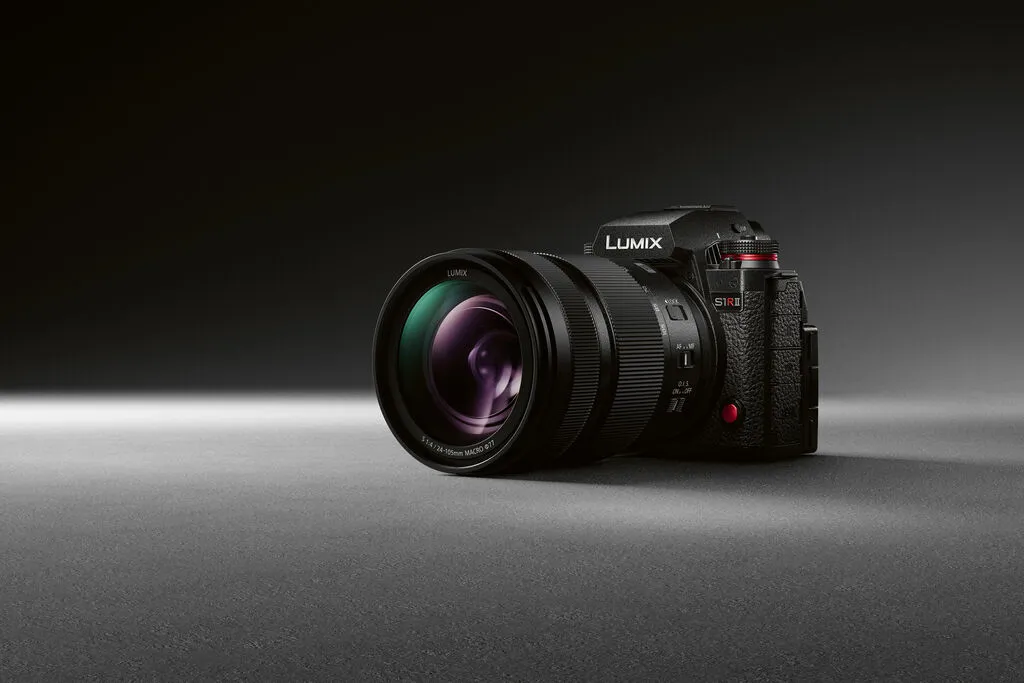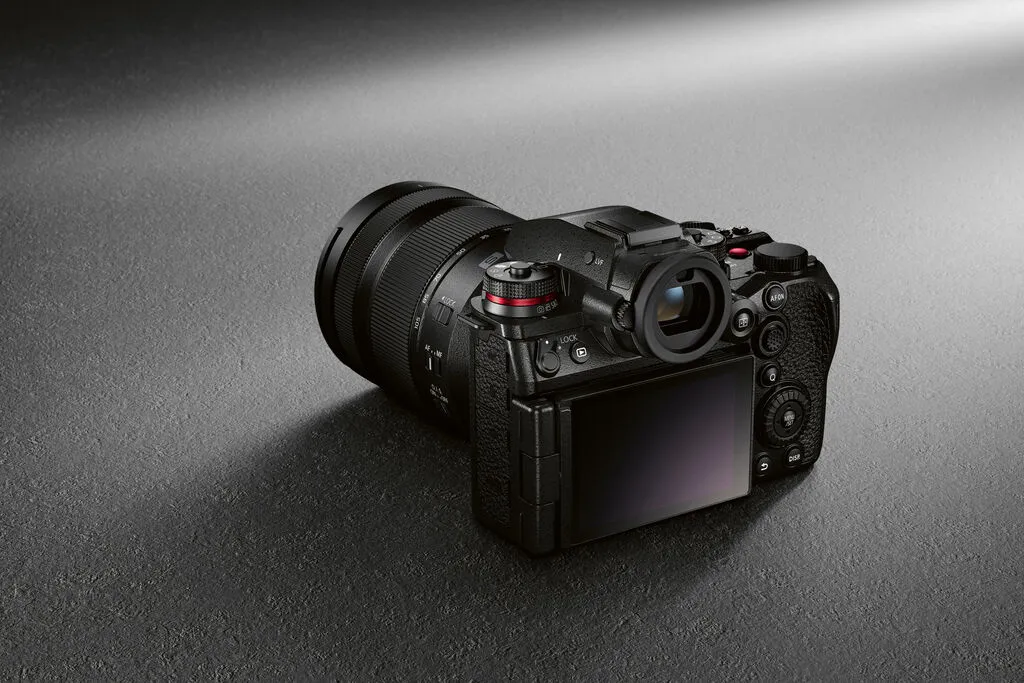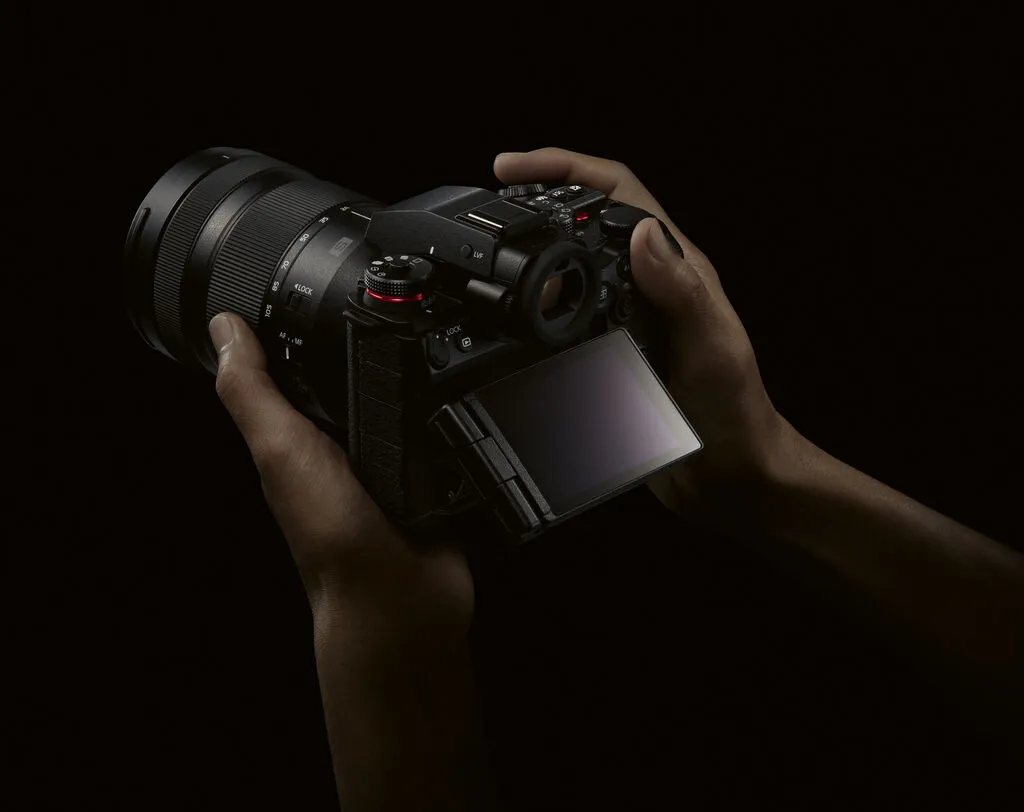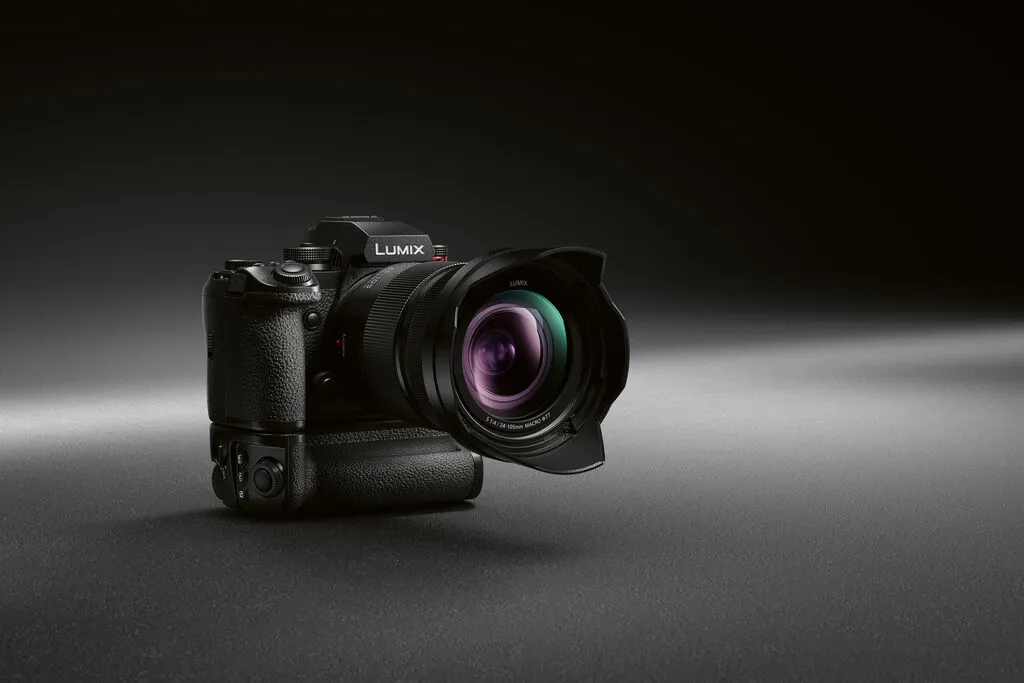
Panasonic LUMIX S1RII released on February 25, the major media and organizations have got the relevant machine for review in advance, the following is a summary of the results of the review, listing the key information that needs attention.
The Panasonic LUMIX DC-S1RII comes with a new back-illuminated sensor (IMX366) that is not stacked and reads at speeds close to that of the 24-megapixel model (IMX410), which means that the bottom of this one isn’t really that fast.
| Base ISO | 2nd gain step | |
| Standard color mode | ISO 80 | ISO 400 |
| Cinelike D2, V2, A2 | ISO 160 | ISO 800 |
| HLG | ISO 320 | ISO 1600 |
| V-Log | ISO 200 | ISO 1000 |
| V-Log + DR Expansion | ISO 400 | ISO 2000 |
Equipped with Dual Conversion Gain (two stops of native ISO), users can manually select two reading modes to suit the needs of different shooting scenarios. The first native ISO comes to 80 in standard color mode.

In terms of focusing performance, the camera is equipped with second-generation image-plane phase-difference AF, as well as significantly improved subject recognition and tracking algorithms, which can recognize a wide range of subjects, including people, animals, vehicles, and more. However, there is still room for improvement in its focusing system, with some scenes failing to focus, and its final performance will need to be further optimized with subsequent firmware updates. Of course there is no mention of an AI chip anywhere, naturally.
The new “Cinelike A2” color mode is suitable for both photo and video shooting, and sits between the “D2” and “V2” profiles, with a softer style to meet the The new “Cinelike A2” color mode is for photo and video shooting, and sits between the “D2” and “V2” profiles, with a softer style to meet specific color style needs. The camera is equipped with a real-time LUT function that can load up to 39 LUTs, and supports combinations of two LUTs with different intensities, making it easy for users to quickly adjust color styles while shooting. For the first time, there’s also a Folscolor option, which helps users get a clearer picture of the exposure in both photo and video modes, and determine which parts of the image may be overexposed or underexposed, for improved shooting accuracy. There’s not much new in this section.

It supports a wide range of video specifications, such as offering resolutions close to UHD 8K, DCI 8K, and an 8.1K resolution option with a 1.89:1 ratio, and features video shooting assistance features common to Panasonic products, such as shutter angle, waveform monitor, and more, as well as support for 4-channel audio and 32-bit Float audio recording via an XLR2 accessory, and adapting anamorphic lenses.
| 422/HQ | |||||
| 60, 50 | 1.04 | ||||
| 60, 50, 30, 25, 24 | 1.52 | ||||
| 120, 100 | 1.10 | 4:2:2 | – | ||
| 16:9 Modes | |||||
|---|---|---|---|---|---|
| 8.0K | 7680 x 4320 | 30, 25, 24 | 1.0 | 4:2:0 | – |
| 5.9K | 5888 x 3312 | 30, 25, 24 | 1.0 | – | |
| 60, 50, 48 | 1.11 | – | |||
| UHD 4K | 3840 x 2160 | 30, 25, 24 | 1.0 | 4:2:2 | 422/HQ |
| 60, 50 | 1.11 | ||||
| 60, 50, 30, 25, 24 | 1.52 | ||||
| 120, 100 | 1.17 | 4:2:2 | – | ||
| 3:2 Modes | |||||
| 6.2K open gate* | 6432 x 4228 | 30, 25, 24 | 1.0 | 4:2:0 | – |
| 4:3 Modes | |||||
| 4.7K | 4736 x 3552 | 60, 50, 48, 30, 25, 24 | 1.65 | 4:2:0 | 422/HQ** |
The camera supports Open Gate shooting, capable of shooting at full resolution from the 3:2 area of the sensor and outputting 6.4K video (higher resolution Open Gate will be supported in a future firmware update), and supports ProRes 422 or ProRes RAW format recording to a CFexpress Type B card or external SSD.
| UHD | DCI | |||
|---|---|---|---|---|
| Crop | Rolling shutter | Crop | Rolling shutter | |
| 8K, 5.xK*, 4K 30/25/24 | 1.00 | 24.9ms | 1.00 | 22.4ms |
| 5.xK*, 4K 50/60 | 1.11 | 15.4ms | 1.04 | 15.3ms |
| 4K 100/120 | 1.17 | 7.3ms | 1.10 | 7.3ms |
| 4K/30 DRExp* | 1.00 | 31.7ms | 1.00 | 29.8ms |
When shooting video, it has a more pronounced rolling shutter phenomenon (big jello) than the stacked sensor models, which is better than the Sony ones but still not as good as the Canon EOS R5 II and Nikon Z 8.
| Output dimensions | Frame Rates | Crop | MOV | ProRes | |
|---|---|---|---|---|---|
| 1.89:1 modos | |||||
| 8.1K | 8128 x 4288 | 30, 25, 24 | 1.0 | 4:2:0 | – |
| 5.8K | 5760 x 4030 | 30, 25, 24 | 1.0 | 422/HQ | |
| 30, 25, 24 | 1.31 | – | RAW/HQ | ||
| 60, 50, 48 | 1.04 | 4:2:0 | – | ||
| DCI 4K | 4096 x 2160 | 30, 25, 24 | 1.0 | 4:2:2 | |
Em termos de design e operação do corpo, a Panasonic LUMIX DC-S1RM2 é baseada na série S5II menor, mais compacta e leve que a série S1 inicial, e possui um ventilador interno e saída de refrigeração, o que garante certa estabilidade para gravações de longa duração – embora não tão boa quanto a "série GH", ainda é capaz de atender a gravações prolongadas. A empunhadura foi aprimorada com um cabo mais profundo. O layout dos botões foi ajustado, com menos botões Fn na frente e um novo botão REC, além de um interruptor dedicado para foto/vídeo/S&Q e um seletor de modos com função de travamento, além de várias posições personalizáveis para facilitar a configuração conforme os hábitos de uso do usuário.

O monitor traseiro da câmera é móvel, de forma semelhante ao Sony α7R V, combinando função de inclinação e ângulo variável que evita efetivamente interferências nos conectores de microfone, fone de ouvido e HDMI, facilitando a visualização da imagem em diferentes ângulos de captura.
Quanto à bateria, a Panasonic LUMIX DC-S1RM2 utiliza a mesma DMW-BLK22 de 15.8Wh do S5II, com autonomia média. No entanto, suporta a nova bateria adicional DMW-BG2, que permite a troca rápida de baterias, utilizando tanto a bateria do grip quanto a do corpo para melhorar a autonomia em combinações de alta potência.

No geral, a Panasonic LUMIX DC-S1RM2, como uma câmera recém-lançada, mostra forte vantagem competitiva em pixels, recursos de vídeo e design do corpo, com preço vantajoso em relação a produtos de mesmo nível (preço estimado de lançamento no mercado nacional: ~R$20.998; se definido em R$19.998, seria considerado justo; acima de R$22.998 teria relação custo-benefício apenas média). Porém, a estabilidade do foco e o controle do rolling shutter em vídeos ainda precisam ser aprimorados.
Panasonic Lumix DC-S1RII | Canon EOS R5 II | Sony a7R V | Panasonic Lumix DC-S1R | |
|---|---|---|---|---|
| Preço de tabela | $3300 | $4300 | $3900 | $3700 |
| Contagem de pixels | 44MP | 45MP | 61MP | 47MP |
| Tipo de sensor | BSI CMOS | Stacked CMOS | BSI CMOS | FSI CMOS |
| Estabilização (IBIS / Sincronizada) | 8.0 EV / 7.0 EV | – / 8.5 EV | 8.0EV / – | 6.0 EV / 7.0 EV |
| Taxa máxima de disparo (Mecânico / E-shutter) | 10 fps / 40 fps | 12 fps / 30fps | 10 fps / | 9 fps / |
| Resolução/magnificação do visor | OLED 5.76M dots / 0.78x | OLED 5.76M dots / 0.76x | 9.44M dots OLED 0.9x | OLED 5.76M dots / 0.78x |
| Tela traseira | 3.2″ 2.1M dots (Inclinação + Articulação total) | 3.2″ 2.1M dots (Articulação total) | 3.2″ 2.1M dots (Inclinação + Articulação total) | 3.2″ 2.1M dots (Inclinação bidirecional) |
| Resolução máxima de vídeo | 8.1K [1.89:1] / 30p UHD 8K / 30p 5.9K Full-width / 60p | DCI 8K / 60p UHD 8K / 60p | UHD 8K / 24p | 5K [3:2] / 30p UHD 4K / 60p |
| Opções de saída | MOV H.264 MOV H.265 ProRes 422 ProRes RAW | MP4 H.264 MP4 H.265 Canon Raw (/Light) | MOV H.264 MOV H.265 | MOV H.265 MP4 H.264 |
| Formatos de armazenamento | 1x UHS-II SD 1x CFe B SSD externo | 1x UHS-II SD 1x CFe B | 2x UHS-II SD / CFe A | 1x UHS-II SD 1x CFe B / XQD |
| Velocidade de sincronização do flash | 1/250 seg | 1/250 seg 1/160 seg | 1/250 seg | 1/320 seg |
| Opções de saída HDR (Fotos / Vídeo) | – / Vídeo HLG | HDR PQ HEIF / Vídeo HDR PQ | HLG HEIF / Vídeo HLG | Foto HLG / Vídeo HLG |
| USB | USB-C 3.2 Gen 2 (10 Gbps) | USB-C 3.2 Gen 2 (10 Gbps) | USB-C 3.2 Gen 2 (10 Gbps) | USB-C 3.1 Gen 1 (5 Gbps) |
| Autonomia da bateria LCD / EVF | 350 / 300 | 540 / 250 | 530 / 440 | 380 / 360 |
| Dimensões | 134 x 102 x 92mm | 139 x 101 x 94mm | 131 x 97 x 82mm | 149 x 110 x 97mm |
| Peso | 795g | 746g | 723g | 1.020g |